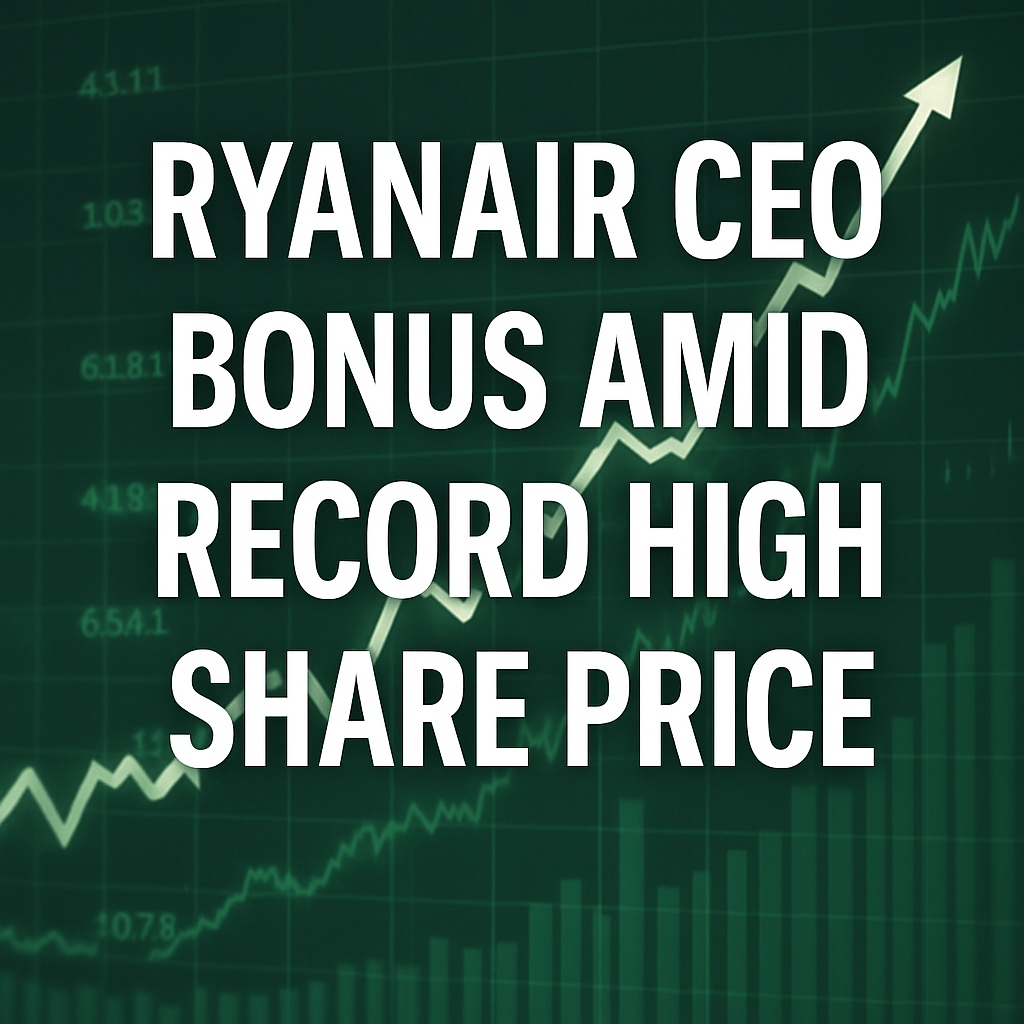Ryanair CEO Bonus Amid Record High Share Price

Michael O’Leary, the chief executive officer of Ryanair, is on the brink of becoming eligible for a €100 million bonus as the low-cost carrier’s shares trade at record highs. With the share price consistently above the hurdle rate of €21 for nearly a month, the airline is closer than ever to meeting the bonus conditions laid out in his long-term incentive plan.
Bonus Scheme Mechanics and Hurdle Rate
According to the terms of O’Leary’s contract, which was first introduced in 2019 and extended in 2022, the bonus vests only if the following criteria are met:
- Ryanair’s share price must remain at or above €21 for a continuous period of 28 trading days.
As of last Monday, the share price stood at €23.80 and had traded above €21 since 2 May, achieving 25 days in a row. - O’Leary must remain employed at Ryanair through 2028, when the bonus would vest and be paid out.
“Delivering exceptional value for Ryanair shareholders in an era when top football managers earn upwards of €20m annually,” O’Leary told The Telegraph, defending the payout.
Technical Accounting and IFRS Implications
Under IFRS 2 rules for share-based payments, Ryanair must recognize the fair value of the bonus as an expense over the vesting period. Analysts estimate an annual charge of around €12m to €15m, assuming a linear vesting schedule. The plan uses a market condition (share price hurdle) rather than a performance target, which means volatility assumptions drive the fair-value model inputs.
Share Buyback Programme and Market Impact
On reporting a net profit of €1.6 billion for the financial year to March, Ryanair also unveiled a €750m share repurchase programme. Barclays analysts note that the buyback could sustain elevated share prices, making it more likely that the €21 threshold is met—and remains in place—for the requisite period.
- Buyback size: €750m (approximately 3% of market capitalisation).
- Execution: open market purchases through 2024–2025.
- Impact: EPS accretion of around 2–3% if fully executed.
Corporate Governance and Regulatory Scrutiny
Despite the financial success, Ryanair has faced criticism over several governance issues:
- Board diversity: The board comprises only one female director, falling short of EU recommendations.
- Independence concerns: Four out of eight non-executive directors have ties to advisory services.
- Consumer complaints: Fines in Spain for ancillary fees on seat selection, carry-on baggage and printing boarding passes.
- Labour relations: Ongoing negotiations with pilot and cabin-crew unions across six European jurisdictions.
Deeper Analysis: Budget Carrier Unit Economics
Ryanair’s business model rests on a high-density seating configuration and rapid aircraft turnarounds, driving a unit cost of roughly €30 per Available Seat Kilometre (ASK). Ancillary revenues—covering baggage fees, in-flight sales and priority boarding—account for nearly 20% of total turnover. Industry experts at Bernstein calculate that a 5% ticket price increase for 2025 could lift yields by €0.50 per passenger, boosting margins by up to 1.5 percentage points.
Future Outlook and Market Risks
Looking ahead, Ryanair must navigate several headwinds:
- Fuel volatility: Hedging positions cover only 60% of projected fuel needs for H2 2024, exposing earnings to spot price swings.
- Regulatory change: EU initiatives on carbon pricing and aviation green levies could add €2–3 per passenger by 2030.
- Competitive pressure: Expansion by Wizz Air and easyJet in Southern Europe may cap capacity utilisation.
Yet, if O’Leary remains at the helm and market conditions hold, the €100m bonus could crystallize in 2028—transforming balance-sheet mechanics and prompting renewed debate over executive pay in Europe’s budget airline sector.
Barclays, Bernstein and Deutsche Bank analysts contributed insights for this article. Euronews has contacted Ryanair for comment.